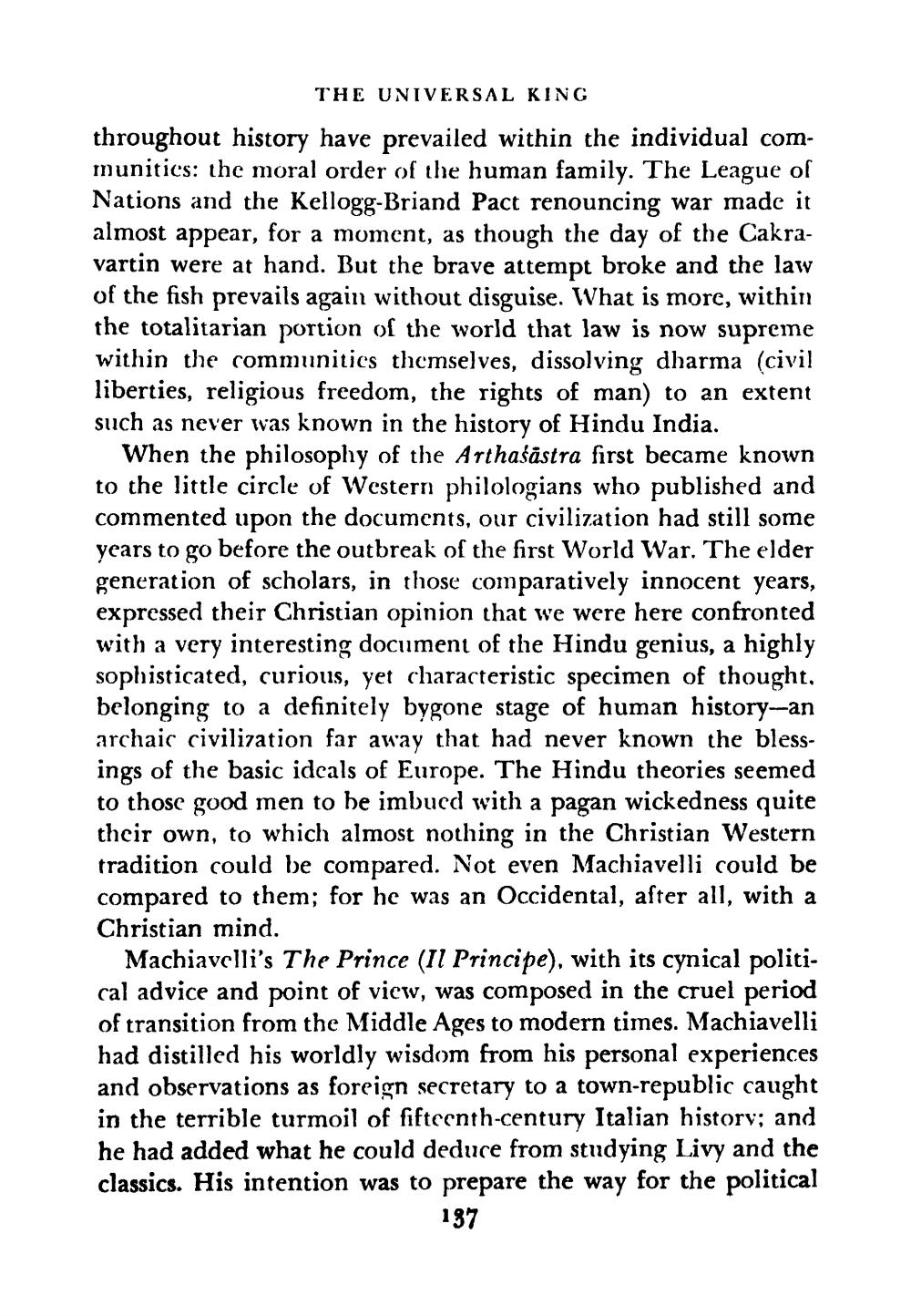________________
THE UNIVERSAL KING
throughout history have prevailed within the individual communities: the moral order of the human family. The League of Nations and the Kellogg-Briand Pact renouncing war made it almost appear, for a moment, as though the day of the Cakravartin were at hand. But the brave attempt broke and the law of the fish prevails again without disguise. What is more, within the totalitarian portion of the world that law is now supreme within the communities themselves, dissolving dharma (civil liberties, religious freedom, the rights of man) to an extent such as never was known in the history of Hindu India.
When the philosophy of the Arthaśāstra first became known to the little circle of Western philologians who published and commented upon the documents, our civilization had still some years to go before the outbreak of the first World War. The elder generation of scholars, in those comparatively innocent years, expressed their Christian opinion that we were here confronted with a very interesting document of the Hindu genius, a highly sophisticated, curious, yet characteristic specimen of thought. belonging to a definitely bygone stage of human history--an archaic civilization far away that had never known the blessings of the basic ideals of Europe. The Hindu theories seemed to those good men to be imbued with a pagan wickedness quite their own, to which almost nothing in the Christian Western tradition could be compared. Not even Machiavelli could be compared to them; for he was an Occidental, after all, with a Christian mind.
Machiavelli's The Prince (Il Principe), with its cynical political advice and point of view, was composed in the cruel period of transition from the Middle Ages to modern times. Machiavelli had distilled his worldly wisdom from his personal experiences and observations as foreign secretary to a town-republic caught in the terrible turmoil of fifteenth-century Italian history; and he had added what he could deduce from studying Livy and the classics. His intention was to prepare the way for the political
137




